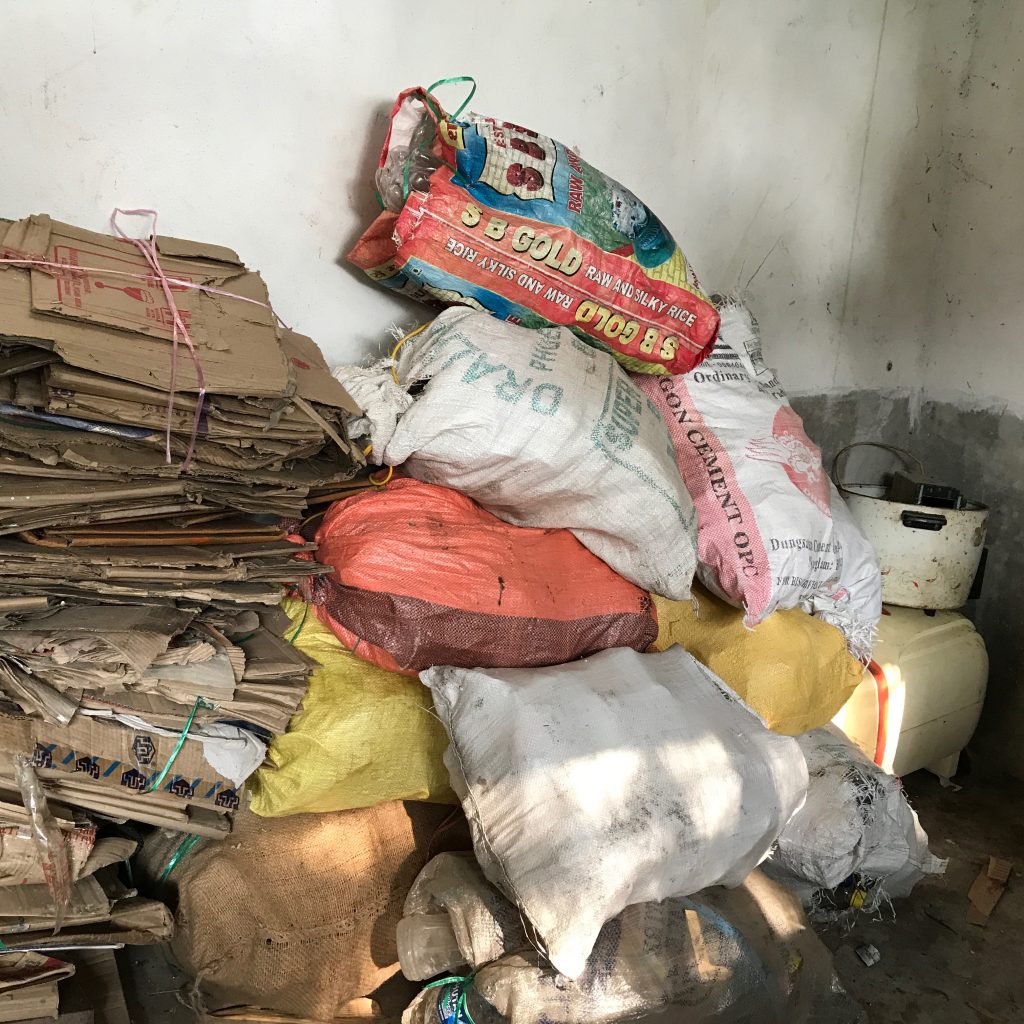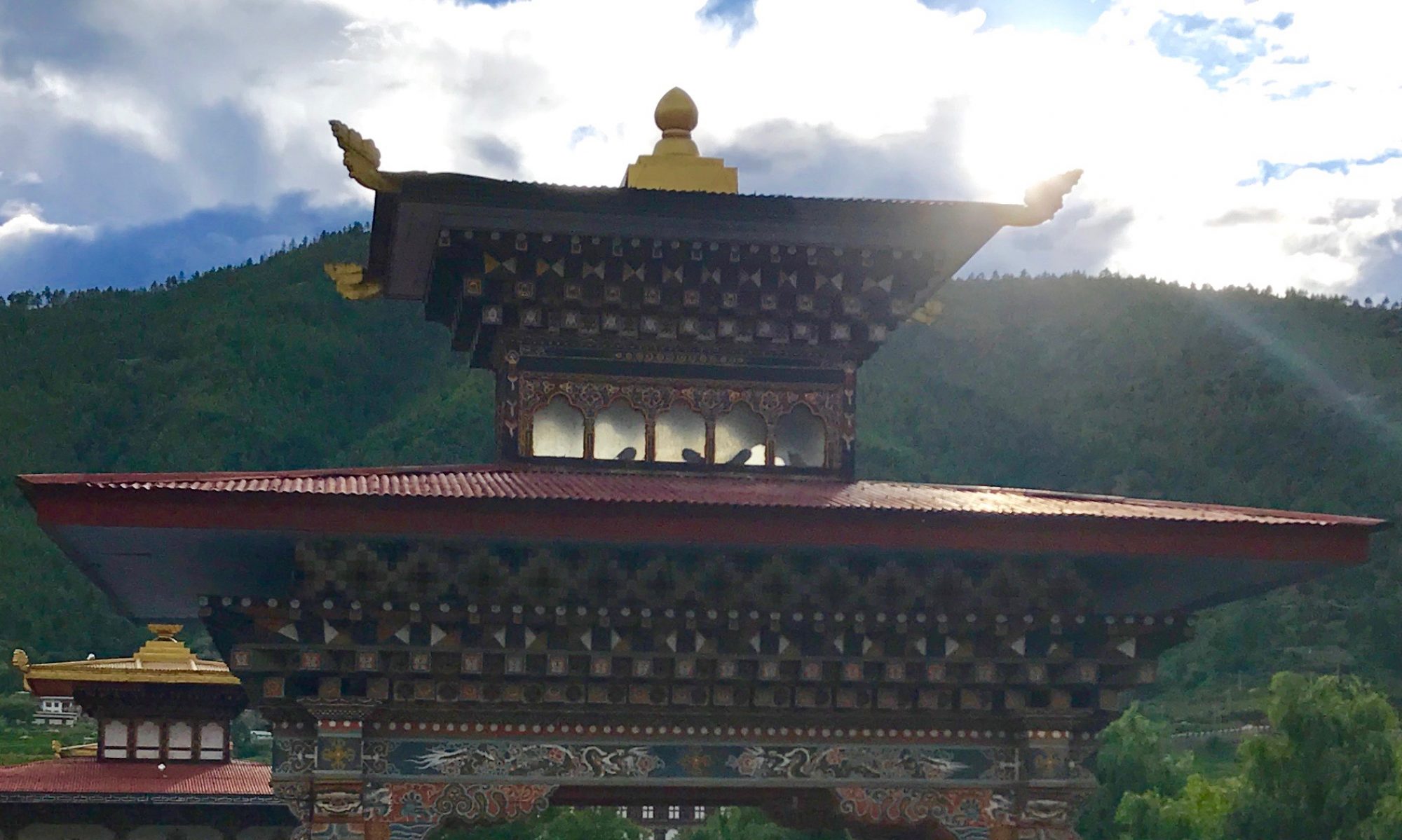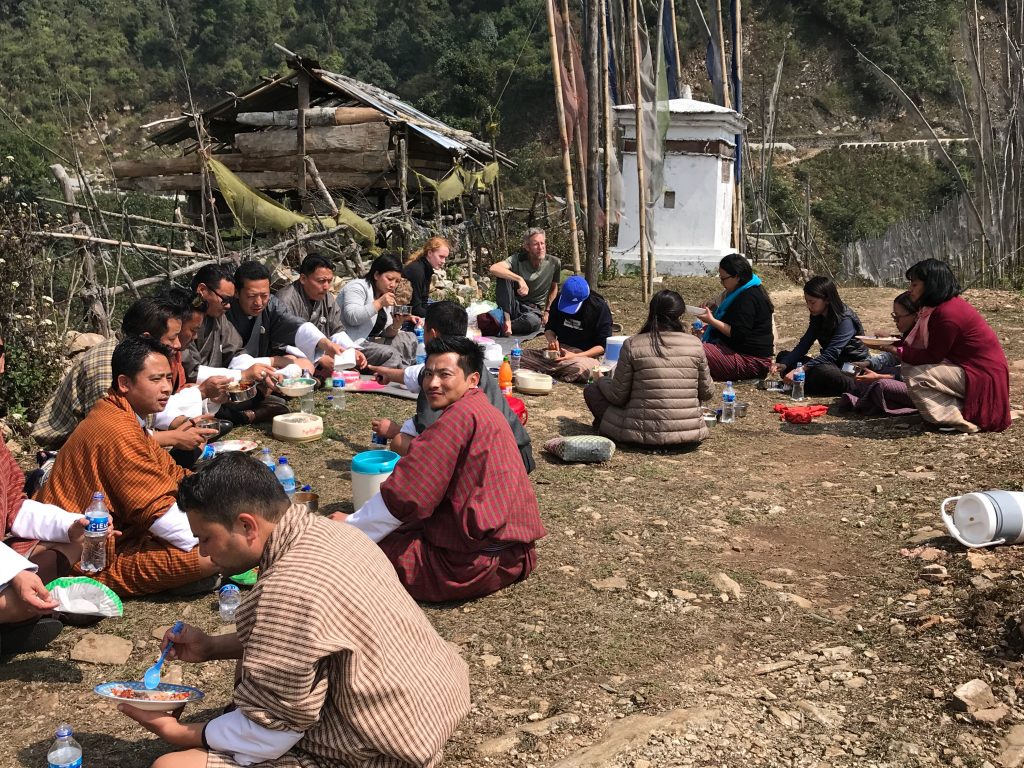
This time, I chivvied the students about a timely departure, and the second bus skated through the roadblock just as they were closing the barrier. We picnicked to the sound of dynamite: the puff of dust from the explosion is visible below:
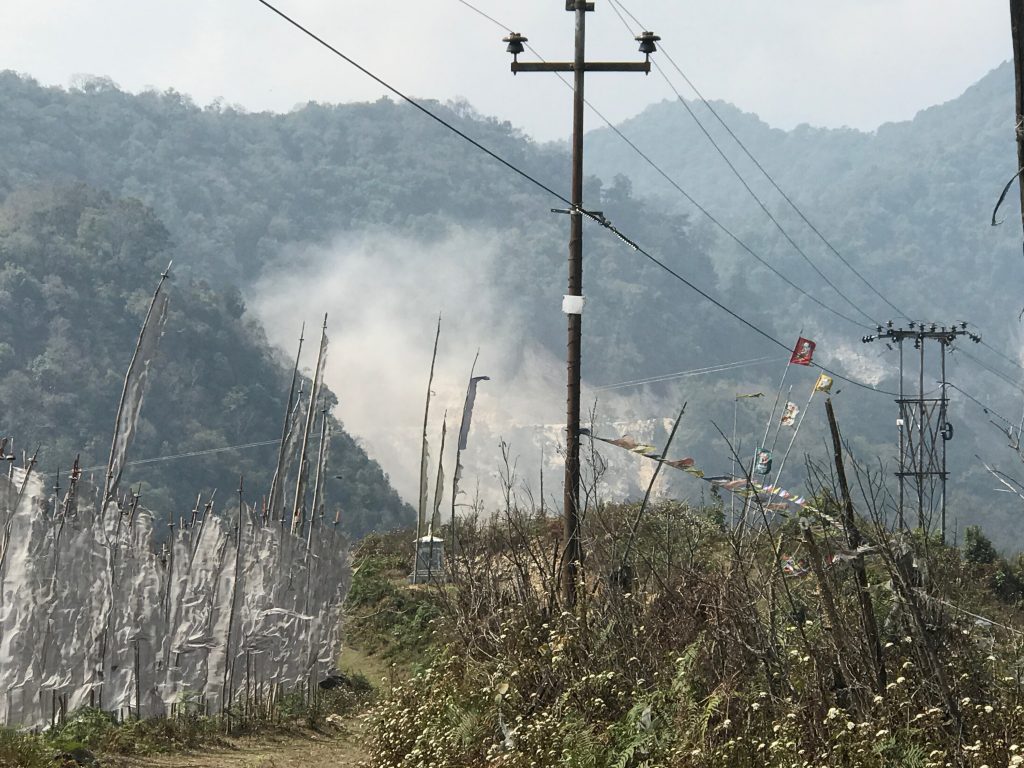
The Zero Waste Initiative in Samdrup Jongkhar is associated with the Lhomon society founded by Dzongsar Khyentse Rinpoche: Lho means south and Mon means one group of people in Bhutan and Assam. We started the day with red butter tea and a presentation on Zero Waste by Lhomon Society staff.
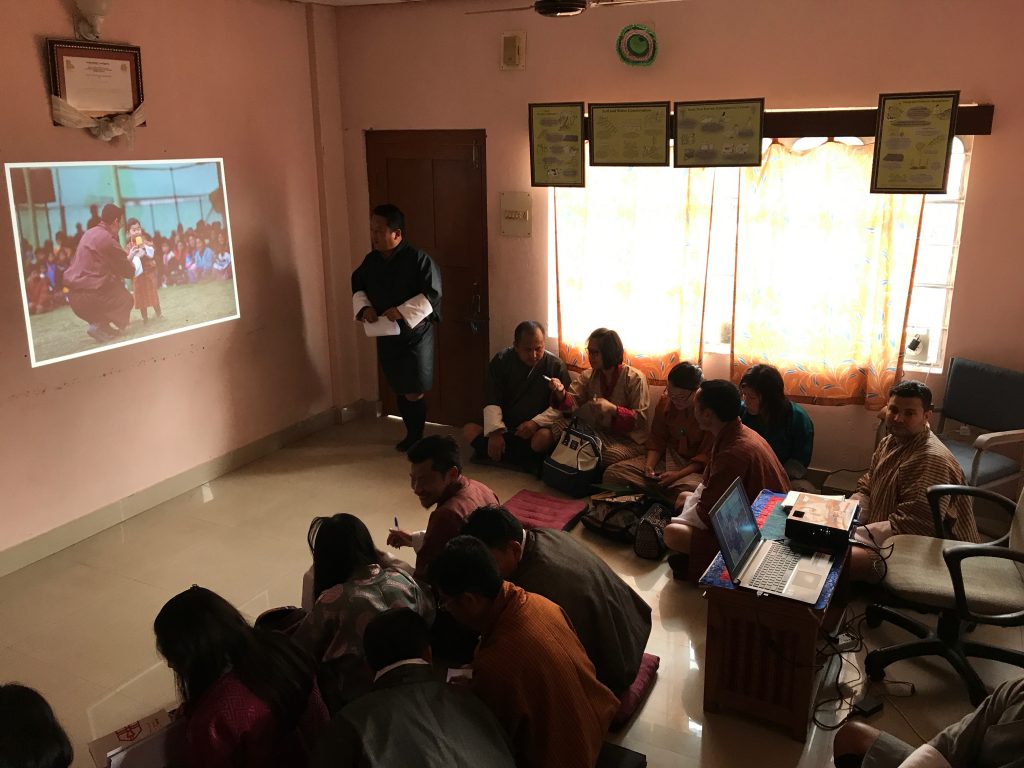
In Dewathang, a zero waste craft center turns plastic bottles and drink cartons into traditionally shaped bags. They demonstrated the simple machine used to rip plastic bottles into consistently sized strips that could be woven in this way.
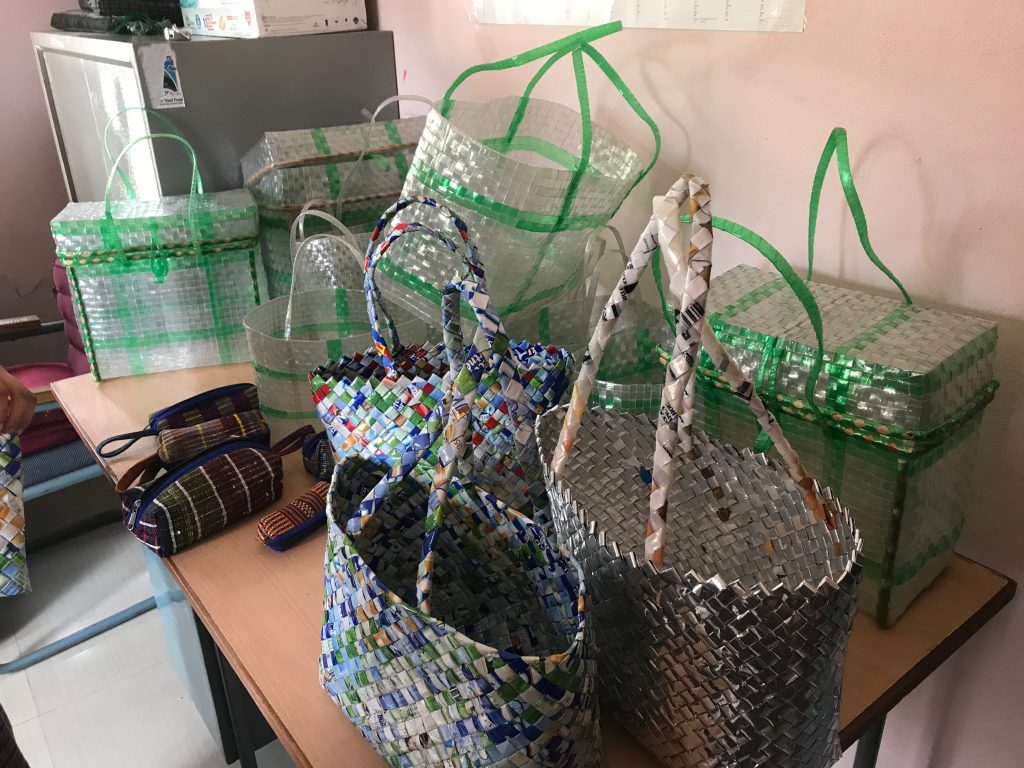
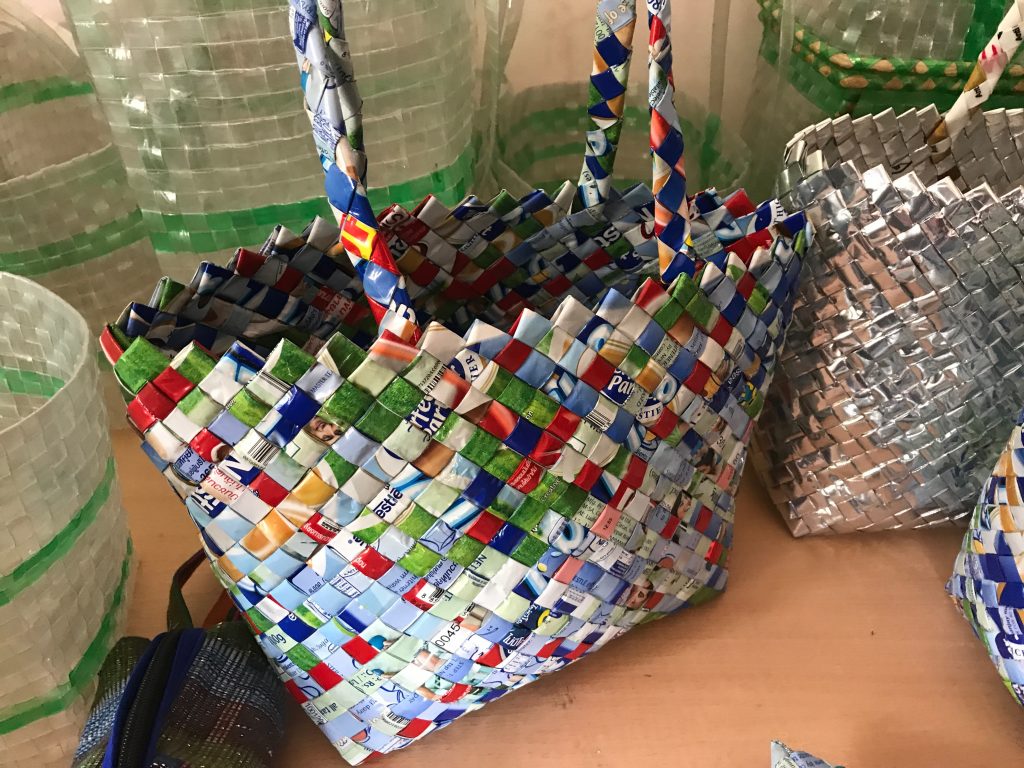
Lead farmer Tshering Gyalpo (better known as Ata Daza gave us a tour of his small holding. First, on the steeply terraced hillside, he talked about his polycultures and the partnership between SJI (Samdrup Jongkhar Initiative) and Vandana Shiva’s Navdanya organization. Since we had read Vandana Shiva’s Earth Democracy for the Ecocriticism course, we were excited to see this connection between her work and Bhutanese farmers!
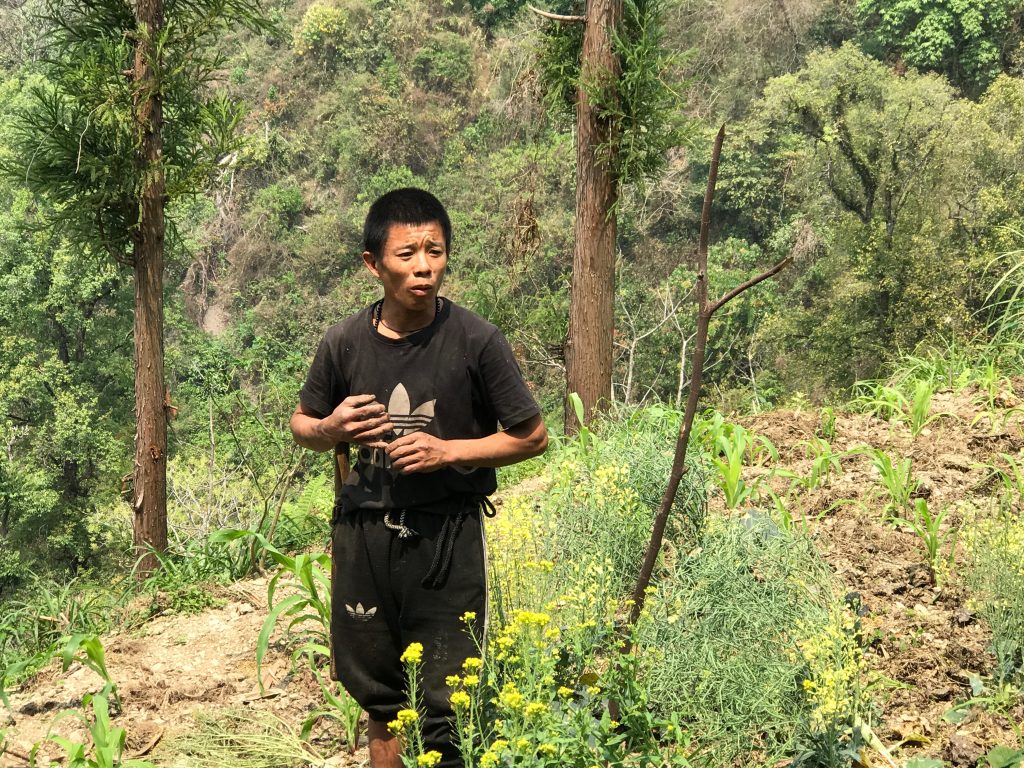
Ata Daza also demonstrated his closed-circle systems for making use of waste: first, his biodigester, turning manure into methane;
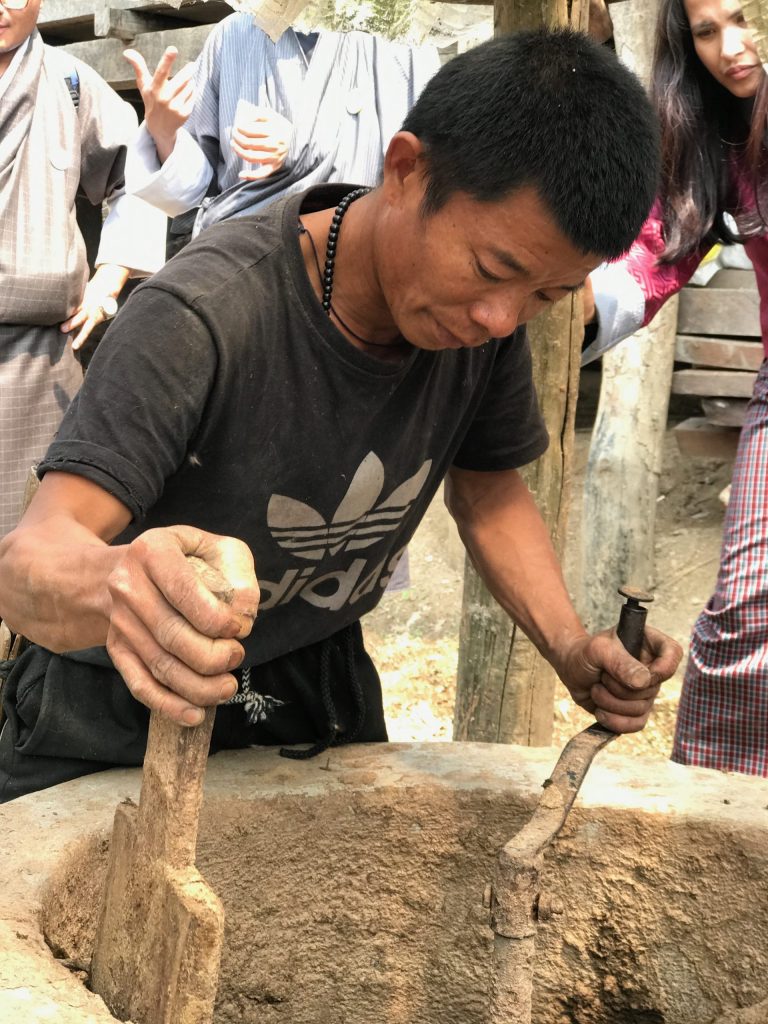
second, his gravity-driven system for harvesting cow urine to water down and use as fertilizer on his fields
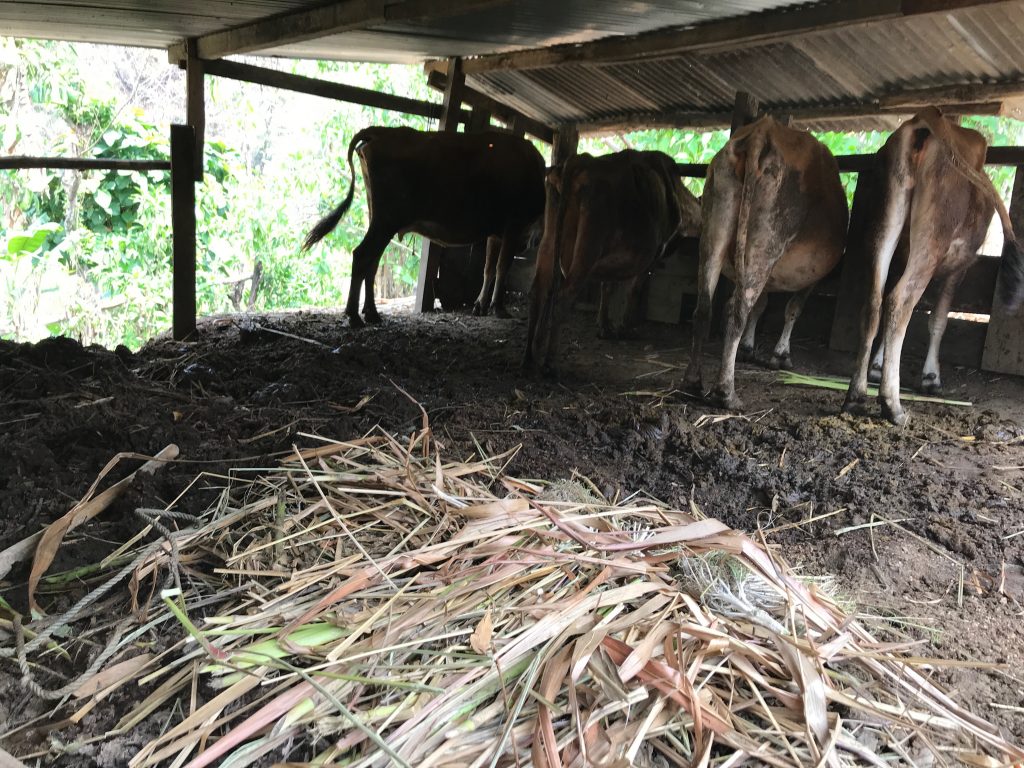
Below, a plastic-covered food drying frame: the plastic intensifies solar heating but the openings at either end of the frame keep air moving (sometimes with a fan) to minimize humidity.
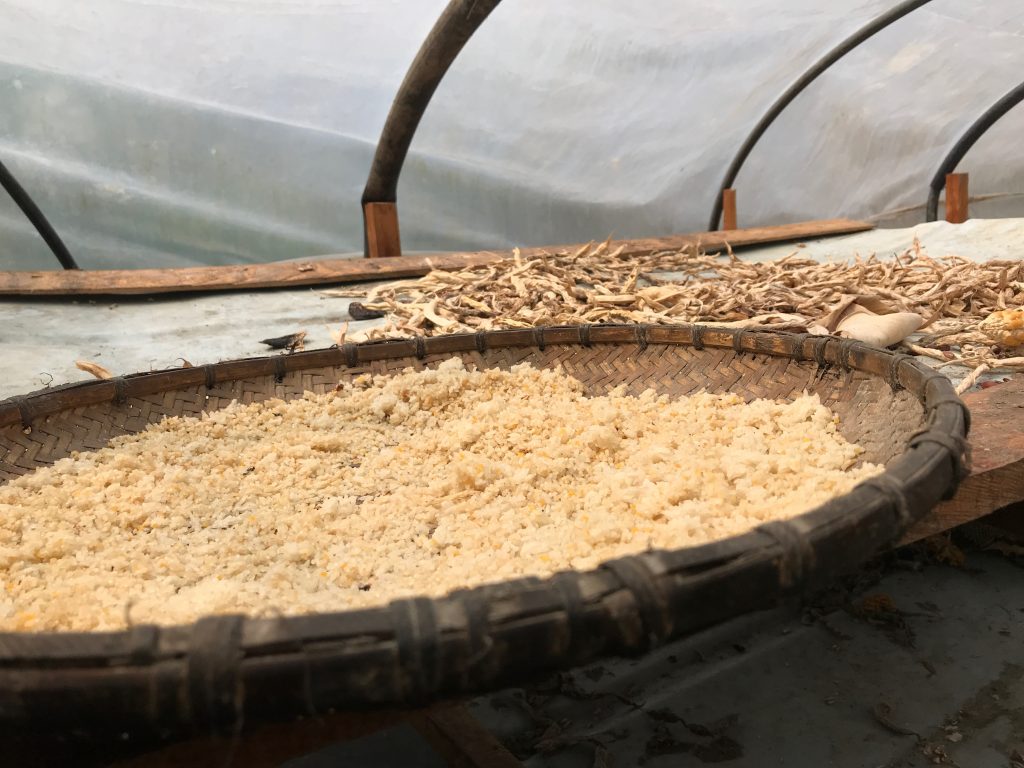
We were also give a tour of the Chokyi Gyatso Institute, a shedra or monastic school that began as a small temple built by Dzongsar Khyentse Rinpoche’s maternal grandfather, the late Lama Sonam Zangpo. Under Dzongsar Khyentse’s leadership, the temple was rebuilt in Tibetan style (as my students kept telling me), and the shedra began trying out innovations in monastic education, including sustainable practices.
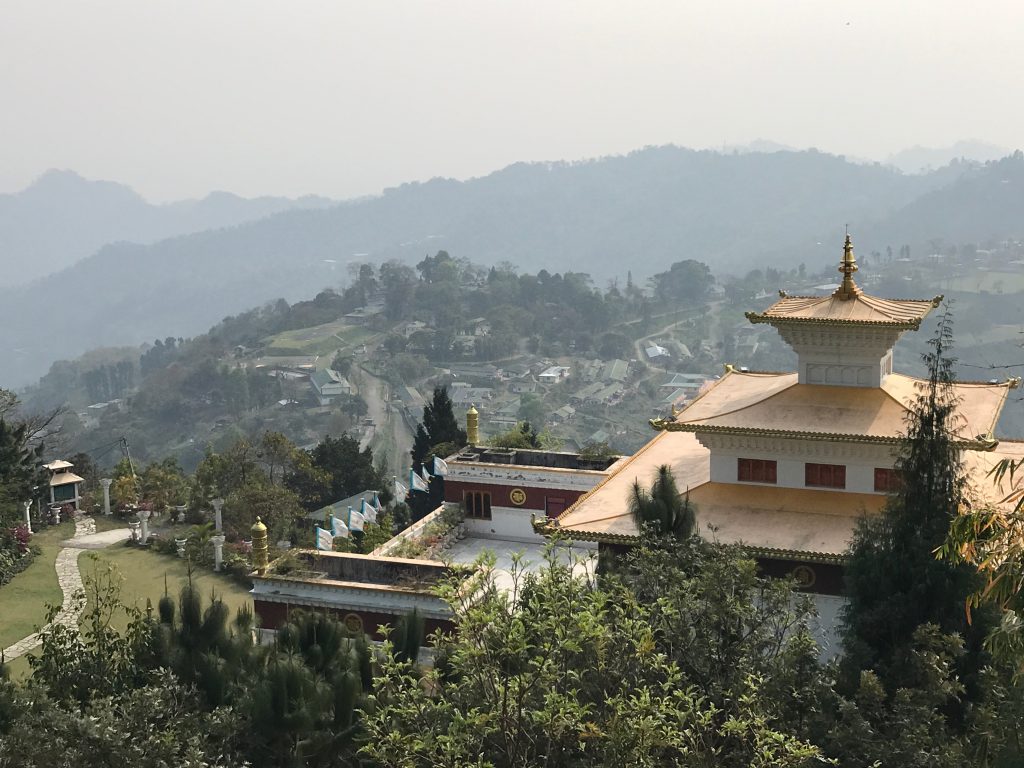
Such a tiny amount of waste to come from a substantial number of people!
